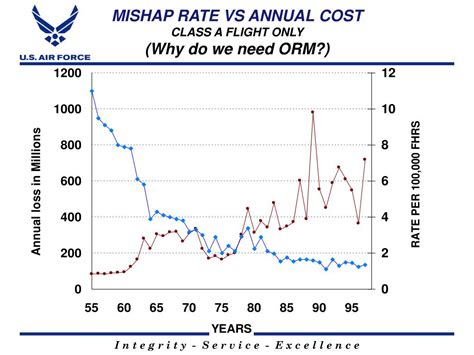
Many Americans hold beliefs about their history, culture, and society that, while widely accepted, are demonstrably false, ranging from misconceptions about historical figures like George Washington and Betsy Ross to inaccurate understandings of Thanksgiving and the origins of certain foods. These myths, often passed down through generations and reinforced by popular culture, contribute to a distorted view of the nation’s past and present.
Debunking American Myths: Separating Fact from Fiction
Myths permeate American culture, shaping perceptions and influencing beliefs about the nation’s history and values. However, many of these widely accepted narratives are demonstrably false, perpetuating misconceptions and distorting reality. From historical inaccuracies to misattributed origins, these myths deserve closer scrutiny.
George Washington and the Cherry Tree: A Fable of Honesty
One of the most enduring American myths centers around George Washington and a cherry tree. The story, popularized by biographer Parson Weems, depicts a young Washington confessing to chopping down his father’s cherry tree, famously declaring, “I cannot tell a lie.” While the anecdote aims to illustrate Washington’s honesty, historians widely regard it as fictional. According to the Yahoo Lifestyle article, “There is no evidence that George Washington ever chopped down a cherry tree, and the story was likely invented by one of his biographers.” Weems’ biography, while popular, is known for embellishments and fictionalized accounts. The myth’s persistence highlights the tendency to create idealized narratives around historical figures, often at the expense of factual accuracy.
Betsy Ross and the American Flag: Questioning the Narrative
Another common misconception revolves around Betsy Ross and her role in designing the American flag. The popular story claims that Ross, a Philadelphia seamstress, designed and sewed the first American flag at the request of George Washington. However, historical evidence supporting this claim is scant. “There is no evidence that Betsy Ross designed the American flag,” the Yahoo article states. The story originated with Ross’s grandson, William Canby, nearly a century after the event supposedly occurred. While Ross was indeed a flag maker, her specific role in designing the iconic stars and stripes remains unsubstantiated. The Betsy Ross myth underscores the challenges of separating historical fact from family lore and patriotic embellishment.
Thanksgiving: A Mythologized Feast
The traditional Thanksgiving narrative, depicting Pilgrims and Native Americans sharing a harmonious feast, often glosses over the complexities and historical inaccuracies surrounding the event. While the Pilgrims and Wampanoag did share a harvest celebration in 1621, the event was likely far different from the romanticized version commonly portrayed. The Yahoo article notes, “The Thanksgiving story is often romanticized, glossing over the complex relationship between the Pilgrims and Native Americans.” The mythologized Thanksgiving narrative often ignores the subsequent conflicts, displacement, and suffering endured by Native Americans. Moreover, the concept of Thanksgiving as a national holiday did not emerge until centuries later, further distancing the modern celebration from its historical roots. Sarah Josepha Hale, a 19th-century writer and editor, played a crucial role in advocating for a national Thanksgiving holiday, which was finally established by President Abraham Lincoln in 1863. The modern Thanksgiving, therefore, is a constructed tradition that draws upon a selective and often inaccurate interpretation of historical events.
The Origins of French Fries: An American Misattribution?
Despite their name, French fries are not French in origin. The widely accepted origin of French fries is Belgium, where they were a popular street food long before appearing in France or the United States. The misnomer likely arose from American soldiers stationed in Belgium during World War I, who encountered the fries and mistakenly associated them with the French language spoken in the region. “French fries are not French; they are Belgian,” confirms the Yahoo article. The anecdote underscores how cultural exchange and linguistic misunderstandings can lead to widespread misattributions.
Fortune Cookies: A San Francisco Treat, Not a Chinese Tradition
Fortune cookies, ubiquitous in Chinese restaurants across America, are surprisingly not a traditional Chinese custom. Their origins can be traced to Japanese bakeries in California at the turn of the 20th century. These early versions, known as “tsujiura senbei,” were larger and darker than the modern fortune cookie but contained similar paper fortunes. Over time, these cookies were adopted by Chinese restaurants in the United States and evolved into the familiar treat we know today. “Fortune cookies are not Chinese; they are Japanese-American,” the Yahoo article emphasizes. The fortune cookie’s journey highlights the complex interplay of cultural appropriation and culinary innovation in shaping American cuisine.
The Myth of the Wild West: A Romanticized Frontier
The Wild West, often depicted in popular culture as a lawless and romantic frontier, is largely a product of myth-making. While the American West was certainly a region of expansion and conflict, the reality was often far more mundane and less dramatic than portrayed in movies and novels. Historians argue that the Wild West was actually relatively peaceful compared to other parts of the United States at the time, and that the image of gun-slinging cowboys and rampant lawlessness is largely exaggerated. The Yahoo article supports this view, suggesting that the “Wild West” image is more fiction than fact. The romanticized Wild West myth serves to reinforce notions of rugged individualism and frontier spirit, often ignoring the darker aspects of westward expansion, such as the displacement and mistreatment of Native Americans.
Columbus Discovered America: A Misleading Claim
The assertion that Christopher Columbus “discovered” America is a Eurocentric and misleading claim. Indigenous peoples had inhabited the Americas for thousands of years before Columbus’s arrival in 1492. To suggest that he “discovered” a land already populated and thriving ignores the rich history and complex civilizations that existed long before European contact. “Columbus did not discover America; Native Americans were already here,” asserts the Yahoo article. The myth of Columbus’s discovery perpetuates a colonial narrative that marginalizes the contributions and experiences of Indigenous peoples. Moreover, Columbus’s voyages initiated a period of European colonization, exploitation, and disease that had devastating consequences for Native American populations.
The Pledge of Allegiance: Its Controversial Origins
The Pledge of Allegiance, a seemingly innocuous expression of patriotism, has a surprisingly controversial history. Written in 1892 by Francis Bellamy, a Christian socialist, the pledge was originally intended to promote national unity and patriotism. However, its inclusion of the phrase “under God” did not occur until 1954, during the height of the Cold War. This addition was largely driven by efforts to differentiate the United States from the atheistic ideology of the Soviet Union. “The Pledge of Allegiance originally didn’t include ‘under God,'” the Yahoo article points out. The addition of “under God” sparked debates about the separation of church and state and the role of religion in public life. The Pledge of Allegiance, therefore, is not a timeless expression of American values but rather a product of specific historical circumstances and political agendas.
The Myth of Puritanical Origins: Beyond the Stereotypes
The Puritans, often portrayed as austere and joyless religious zealots, were a more complex and nuanced group than popular stereotypes suggest. While they certainly held strict religious beliefs and enforced moral codes, they also valued education, community, and self-governance. The myth of Puritanical origins often overlooks the diverse motivations and experiences of those who settled in colonial New England. “The Puritans were not as puritanical as you think,” the Yahoo article implies, suggesting a more nuanced understanding of their beliefs and practices is warranted. Their emphasis on literacy and education, for example, led to the establishment of Harvard College, the first institution of higher learning in the United States. Understanding the complexities of Puritan society requires moving beyond simplistic stereotypes and engaging with historical sources that reveal the richness and diversity of their culture.
Paul Revere’s Ride: A Carefully Crafted Narrative
Paul Revere’s midnight ride, immortalized in Henry Wadsworth Longfellow’s poem, is a highly romanticized and somewhat inaccurate account of the events leading up to the Battle of Lexington and Concord. Revere was not the only rider that night, and his role was primarily to alert the militia of the British troop movements. Furthermore, Revere never actually completed his ride, as he was captured by British soldiers before reaching Concord. “Paul Revere wasn’t the only rider, and he didn’t even finish his ride,” the Yahoo article reveals, highlighting the discrepancies between the myth and the historical reality. Longfellow’s poem, while a powerful work of literature, contributed to the creation of a heroic narrative that simplifies and embellishes the actual events. The myth of Paul Revere’s ride serves to reinforce notions of American courage and resistance in the face of British oppression.
Manifest Destiny: Justification for Expansion
The concept of Manifest Destiny, the belief that the United States was destined to expand across the North American continent, played a significant role in shaping American history. However, the ideology of Manifest Destiny often served as a justification for the displacement and dispossession of Native Americans and the annexation of territories from Mexico. The Yahoo article implicitly criticizes this justification. While proponents of Manifest Destiny viewed westward expansion as a divinely ordained mission, critics argued that it was a thinly veiled excuse for territorial aggrandizement and the perpetuation of slavery. The legacy of Manifest Destiny continues to be debated, with historians grappling with its impact on American identity, foreign policy, and relations with Indigenous peoples.
The American Dream: Promise or Illusion?
The American Dream, the belief that anyone can achieve success and prosperity through hard work and determination, is a central tenet of American identity. However, critics argue that the American Dream is increasingly unattainable for many Americans, particularly those from disadvantaged backgrounds. Factors such as income inequality, lack of access to education and healthcare, and systemic discrimination can create significant barriers to upward mobility. The Yahoo article indirectly questions the achievability of the “American Dream” for all. While the American Dream continues to inspire hope and aspiration, it is important to acknowledge the challenges and inequalities that prevent many Americans from realizing its promise. The debate over the American Dream reflects broader concerns about social mobility, economic justice, and the distribution of opportunity in American society.
The Melting Pot: Assimilation or Cultural Pluralism?
The concept of the United States as a “melting pot,” where immigrants from diverse backgrounds assimilate into a single American culture, has been challenged by proponents of cultural pluralism. Cultural pluralism emphasizes the importance of preserving and celebrating the unique cultural identities of different ethnic and racial groups within American society. The Yahoo article might be interpreted as supporting a more pluralistic view. While assimilation has certainly played a role in shaping American culture, it has also been criticized for压制 minority cultures and perpetuating inequalities. The debate over the melting pot versus cultural pluralism reflects ongoing discussions about immigration, multiculturalism, and the nature of American identity.
The Myth of American Exceptionalism: A Critical Examination
American exceptionalism, the belief that the United States is unique and superior to other nations, is a widely held but controversial view. Proponents of American exceptionalism often point to the nation’s democratic values, economic strength, and global leadership role as evidence of its unique status. However, critics argue that American exceptionalism can lead to arrogance, isolationism, and a disregard for international norms. The Yahoo article implicitly challenges uncritical acceptance of “American exceptionalism.” Furthermore, they argue that a critical examination of American history reveals a more complex and nuanced picture of the nation’s strengths and weaknesses. The debate over American exceptionalism is central to discussions about American foreign policy, national identity, and the nation’s role in the world.
The Second Amendment: Individual Right or Collective Security?
The Second Amendment to the United States Constitution, which guarantees the right to bear arms, has been the subject of intense debate and legal interpretation. One interpretation views the Second Amendment as protecting an individual’s right to own firearms for self-defense, while another interpretation views it as protecting the right of states to maintain militias for collective security. The Yahoo article doesn’t delve into this complex issue but the rewritten piece would need to acknowledge the complexity of the debates surrounding this. The Supreme Court has issued rulings on the Second Amendment that have attempted to clarify its meaning, but the debate over its interpretation continues to be a major point of contention in American politics. The Second Amendment debate reflects fundamental disagreements about the role of government, individual rights, and public safety.
The Myth of a Classless Society: Economic Inequality in America
Despite the rhetoric of equality and opportunity, the United States is characterized by significant economic inequality. The gap between the rich and the poor has widened in recent decades, and social mobility has declined. The myth of a classless society often obscures the realities of poverty, discrimination, and limited opportunity that many Americans face. The Yahoo article, by implication, reveals that the myth is untrue. Addressing economic inequality requires confronting systemic issues such as regressive tax policies, inadequate social safety nets, and barriers to education and employment. The debate over economic inequality is central to discussions about social justice, economic opportunity, and the future of American society.
The Electoral College: A Relic of the Past?
The Electoral College, the system used to elect the President of the United States, has been criticized for being undemocratic and for potentially leading to situations where the popular vote winner does not win the presidency. Critics argue that the Electoral College disproportionately favors smaller states and gives an outsized voice to swing states. While the Yahoo article does not mention the Electoral College, it is a part of American myths and misunderstandings. Proponents of the Electoral College argue that it protects the interests of rural areas and prevents a tyranny of the majority. The debate over the Electoral College reflects fundamental disagreements about the nature of democracy, the balance of power between states and the federal government, and the fairness of the electoral process.
FAQ Section:
Q1: Is the story about George Washington and the cherry tree true?
A: No, according to historical sources and the Yahoo Lifestyle article, “There is no evidence that George Washington ever chopped down a cherry tree, and the story was likely invented by one of his biographers.” The story was likely fabricated by Parson Weems to illustrate Washington’s honesty.
Q2: Did Betsy Ross design the American flag?
A: The historical evidence supporting the claim that Betsy Ross designed the American flag is limited. As the Yahoo article states, “There is no evidence that Betsy Ross designed the American flag.” The story originated with Ross’s grandson nearly a century after the event supposedly occurred.
Q3: Are French fries actually French?
A: No, French fries are not French in origin. The Yahoo article confirms they “are not French; they are Belgian.” They originated in Belgium and were mistakenly associated with France due to linguistic confusion.
Q4: Are fortune cookies a traditional Chinese custom?
A: No, fortune cookies are not a traditional Chinese custom. As stated in the Yahoo article, “Fortune cookies are not Chinese; they are Japanese-American.” They originated in Japanese bakeries in California and were later adopted by Chinese restaurants in the United States.
Q5: Did Christopher Columbus discover America?
A: No, Christopher Columbus did not discover America. As the Yahoo article asserts, “Columbus did not discover America; Native Americans were already here.” Indigenous peoples had inhabited the Americas for thousands of years before Columbus’s arrival.
Q6: What are the origins of the Pledge of Allegiance?
A: The Pledge of Allegiance was written in 1892 by Francis Bellamy, a Christian socialist, but it originally didn’t include the words “under God.” Those words were added in 1954 during the Cold War.
Q7: Is the Wild West as wild as movies portray it?
A: No, the “Wild West” image is more fiction than fact. Historians suggest that the Wild West was actually relatively peaceful compared to other parts of the United States at the time.
Q8: What is Manifest Destiny?
A: Manifest Destiny was the belief that the United States was destined to expand across the North American continent, often used to justify the displacement of Native Americans and annexation of territories.
Q9: What is the American Dream?
A: The American Dream is the belief that anyone can achieve success and prosperity through hard work and determination, although its attainability is increasingly debated due to economic inequality.
Q10: What is the “Melting Pot” concept in the United States?
A: The “Melting Pot” concept suggests that immigrants assimilate into a single American culture, which is often contrasted with the idea of cultural pluralism, emphasizing the preservation of diverse cultural identities.
Q11: What is the debate surrounding American exceptionalism?
A: The debate involves whether the United States is unique and superior to other nations, with critics arguing it can lead to arrogance and disregard for international norms.
Q12: What are the different interpretations of the Second Amendment?
A: One interpretation sees it as protecting an individual’s right to own firearms for self-defense, while another views it as protecting the right of states to maintain militias.
Q13: Is the United States a classless society?
A: Despite the rhetoric of equality, the United States has significant economic inequality, making the idea of a classless society a myth.
Q14: What are some criticisms of the Electoral College?
A: Critics argue it’s undemocratic, can lead to the popular vote loser winning the presidency, and disproportionately favors smaller states.
Q15: What is the myth about the Puritans?
A: The myth often portrays them as austere and joyless, while in reality, they also valued education, community, and self-governance.
Q16: Was Paul Revere the only rider?
A: No, Paul Revere wasn’t the only rider, and he didn’t even finish his ride. His role was to alert the militia of the British troop movements, but he was captured before reaching Concord.
Q17: Where did the story of Thanksgiving come from?
A: The traditional Thanksgiving narrative often glosses over the complex relationship between the Pilgrims and Native Americans, romanticizing the event and ignoring subsequent conflicts.
Q18: Is the Pledge of Allegiance completely uncontroversial?
A: No, its inclusion of the phrase “under God” sparked debates about the separation of church and state and the role of religion in public life.
Q19: What is cultural pluralism?
A: Cultural pluralism emphasizes the importance of preserving and celebrating the unique cultural identities of different ethnic and racial groups within American society.
Q20: How has Manifest Destiny influenced American history?
A: It served as a justification for the displacement and dispossession of Native Americans and the annexation of territories from Mexico, shaping American identity and foreign policy.
Conclusion
Many widely held beliefs about American history and culture are, in fact, myths that distort our understanding of the past and present. From the fictional tale of George Washington and the cherry tree to the misattributed origins of French fries and fortune cookies, these misconceptions highlight the importance of critical thinking and historical accuracy. By debunking these myths, we can gain a more nuanced and informed perspective on American identity and the complexities of our shared history. Moving beyond these simplistic narratives allows for a more honest and complete understanding of the forces that have shaped the nation. Furthermore, recognizing the constructed nature of many American traditions encourages a more inclusive and critical engagement with the past, promoting a more accurate and equitable understanding of the nation’s history and its diverse populations. The persistence of these myths underscores the need for ongoing education and critical analysis to ensure a more informed and accurate understanding of American history and culture. These efforts can help to foster a more inclusive and representative narrative that reflects the diverse experiences and contributions of all Americans.









